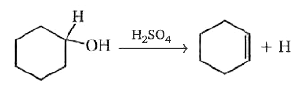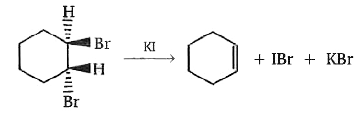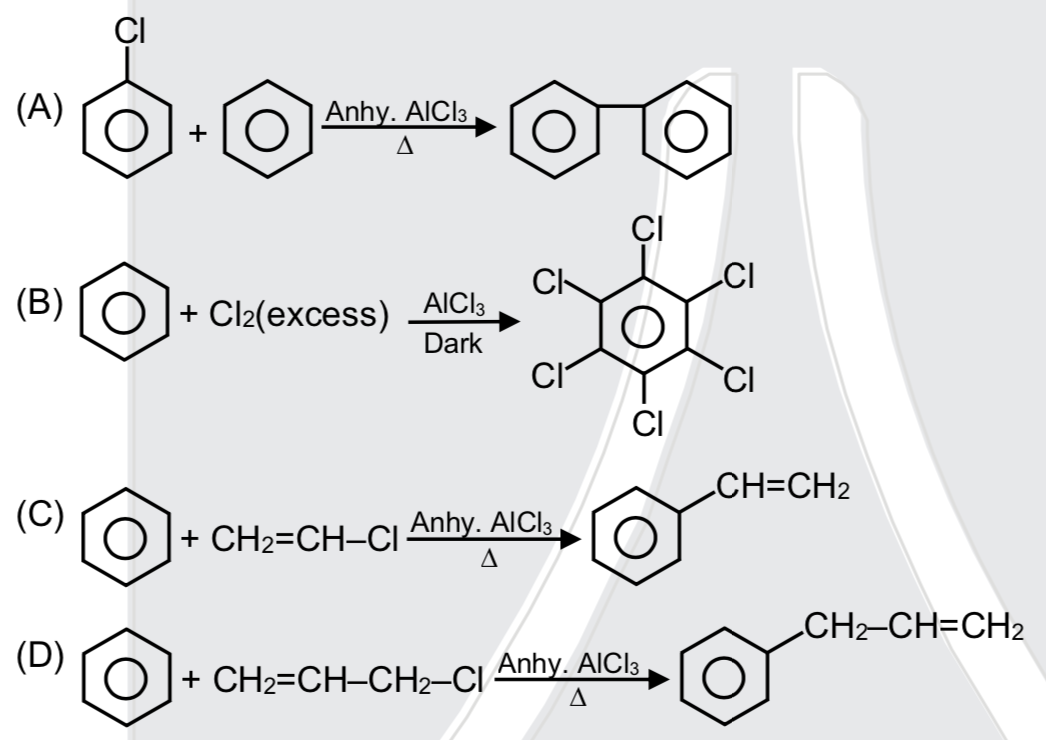Which of the following reactions is a decomposition reaction ?
HCl + NaOH → NaCl + H2O
Zn+CuSO4→ZnSO4+Cu
2HgOΔ−−→2Hg+O2
CO2+H2O→H2CO3
The correct Answer is:C
To determine which of the following reactions is a decomposition reaction, we need to understand what a decomposition reaction is. A decomposition reaction is a type of chemical reaction where one compound breaks down into two or more simpler substances, usually upon heating or through some other process.
Let's analyze the given reactions one by one:
1. First Reaction: Strong acid + Strong base → Salt + Water
- This reaction is a neutralization reaction, where an acid reacts with a base to produce a salt and water. It does not involve the breakdown of a single compound into simpler substances. Thus, this is not a decomposition reaction.
2. Second Reaction: Zinc + CuSO4 → Zinc Sulfate + Copper
- In this reaction, zinc displaces copper from copper sulfate. This is a single displacement reaction, where one element replaces another in a compound. Since it does not involve the breakdown of a single compound into simpler substances, this is also not a decomposition reaction.
3. Third Reaction: HgO2 → Hg + O2
- Here, mercuric oxide (HgO2) decomposes into mercury (Hg) and oxygen gas (O2). This is a classic example of a decomposition reaction, as one compound (HgO2) is breaking down into two simpler substances (Hg and O2).
4. Fourth Reaction: H2CO3 → H2O + CO2
- This reaction involves the decomposition of carbonic acid (H2CO3) into water (H2O) and carbon dioxide (CO2). This is also a decomposition reaction, as a single compound is breaking down into two simpler substances.
Based on the analysis above, we can conclude that both the third and fourth reactions are decomposition reactions. However, if we are to choose one from the options provided, the third reaction (HgO2 → Hg + O2) is a clear and straightforward example of a decomposition reaction.
Final Answer: The decomposition reaction is HgO2 → Hg + O2.
- This reaction is a neutralization reaction, where an acid reacts with a base to produce a salt and water. It does not involve the breakdown of a single compound into simpler substances. Thus, this is not a decomposition reaction.
- In this reaction, zinc displaces copper from copper sulfate. This is a single displacement reaction, where one element replaces another in a compound. Since it does not involve the breakdown of a single compound into simpler substances, this is also not a decomposition reaction.
- Here, mercuric oxide (HgO2) decomposes into mercury (Hg) and oxygen gas (O2). This is a classic example of a decomposition reaction, as one compound (HgO2) is breaking down into two simpler substances (Hg and O2).
- This reaction involves the decomposition of carbonic acid (H2CO3) into water (H2O) and carbon dioxide (CO2). This is also a decomposition reaction, as a single compound is breaking down into two simpler substances.
Similar Questions
Knowledge Check
Which of the following reaction is an elimination reaction ?
A B
B C
C Dboth (a) and (b)
Dboth (a) and (b)Which of the following is a redox decomposition reaction ?
ACaCO3(s)Δ−−→CaO(s)+CO2(g)B2KClO3(s)Δ−−→2KCl(s)+3O2(g)C2H2O(l)+2F2(g)→4HF(aq)+O2(g)D2Na(s)+Cl2(g)→2NaCl(s)Which one of the following reactions is not a redox reaction ?
AH++OH−→H2OBZn+2HCl→ZnCl2+H2C12H2+12Cl2→HClDZn+12O2→ZnO
Which of the following reactions are possible ?

View SolutionWhich of the following reactions are possible ?

View SolutionWhich of the following reactions are disproportionation reaction ?
View SolutionWhich of the following reactions is not a disproportination reaction ?
View SolutionWhich of the following reaction are correct?
View Solution
